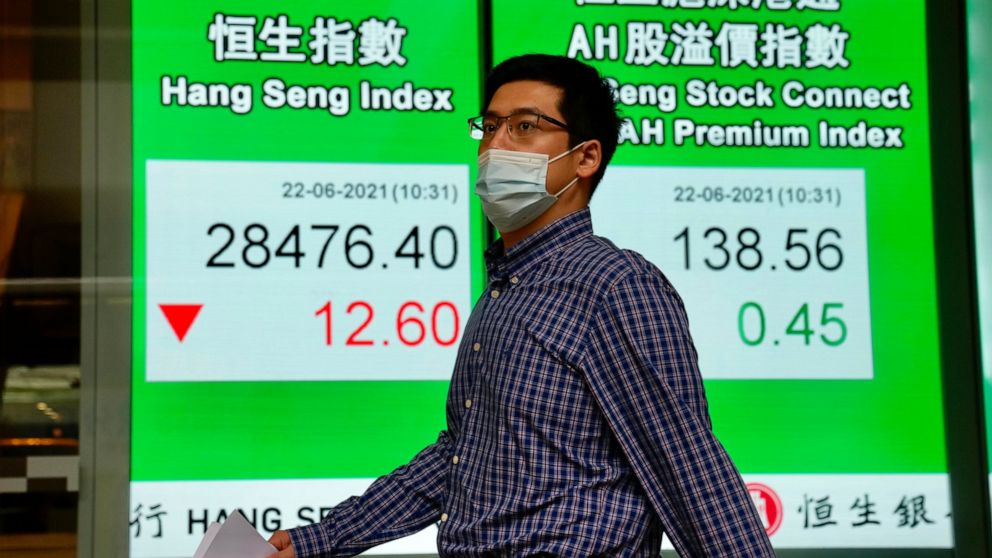US stocks open mostly lower ahead of testimony from Powell
Stocks are opening mostly lower on Wall Street as traders wait for more clues on the Federal Reserve’s thinking on inflation
TOKYO — Stocks are opening mostly lower on Wall Street as traders wait for more clues on the Federal Reserve’s thinking on inflation. Fed Chair Jerome Powell will testify before Congress later Tuesday on the central bank’s response to the coronavirus pandemic. In prepared remarks, Powell reaffirmed the Fed’s position that while inflation has accelerated recently, the Fed expect the effects to be transitory. The S&P 500 slipped less than 0.1% in the early going, while gains for a handful of tech giants helped push the Nasdaq up less than 0.1%. Bond prices fell. The yield on the 10-year Treasury note rose to 1.51%.
THIS IS A BREAKING NEWS UPDATE. AP’s earlier story follows below.
TOKYO (AP) — Global shares were mixed Tuesday after Wall Street’s recovery from its latest bout of jitters over future central bank policies.
France’s CAC 40 shed 0.1% in early trading to 6,594.02, while Germany’s DAX slipped 0.3% to 15,550.99. Britain’s FTSE 100 added 0.3% to 7,079.95. The future for the Dow industrials was almost unchanged while that for the S&P 500 inched down less than 0.1%.
Japan’s benchmark Nikkei 225 jumped 3.1% to finish at 28,884.13. Australia’s S&P/ASX 200 surged 1.5% to 7,342.20. South Korea’s Kospi rose 0.7% to 3,263.88. Hong Kong’s Hang Seng fell 0.6% to 28,309.76, while the Shanghai Composite gained 0.8% to 3,557.41. Shares rose in India, Taiwan and Southeast Asia.
Federal Reserve Chair Jerome Powell says the economy is growing at a healthy clip, and that has accelerated inflation. In written testimony to be delivered at a congressional oversight hearing Tuesday, Powell reiterated his view that inflation’s recent jump to a 13-year high will prove temporary.
Powell’s remarks follow a meeting of the Fed’s policymaking committee last week, when central bank officials signaled they were prepared to raise rates earlier than they had previously suggested.
But despite the reassurance from Powell, renewed coronavirus outbreaks are clouding the outlook in much of Asia.
“Much of the region is dealing with renewed waves of COVID-19 infections. These waves, especially in the case of India, Indonesia and some other countries in Southeast Asia, are the most severe yet,” said Venkateswaran Lavanya at Mizuho Bank in Singapore.
Investors are still figuring all the ramifications of the Fed’s forecast that may start raising short-term interest rates by late 2023. That’s earlier than previously thought. The Fed also began talks about slowing programs meant to keep longer-term rates low, an acknowledgment of the strengthening economy and threat of higher inflation.
The market’s immediate reaction to last week’s Fed news was to send stocks lower and interest rates higher. Higher rates would make stock prices, which have been climbing faster than corporate profits, look even more expensive than they do already.
In energy trading, benchmark U.S. crude oil lost 53 cents to $72.59 in electronic trading on the New York Mercantile Exchange. It jumped $1.83 to $73.12 on Monday. Brent crude, the international standard, fell 46 cents to $74.44 a barrel.
In currency trading, the U.S. dollar rose to 110.48 Japanese yen from 110.31 yen. The euro fell to $1.1886 from $1.1914.
![]()


